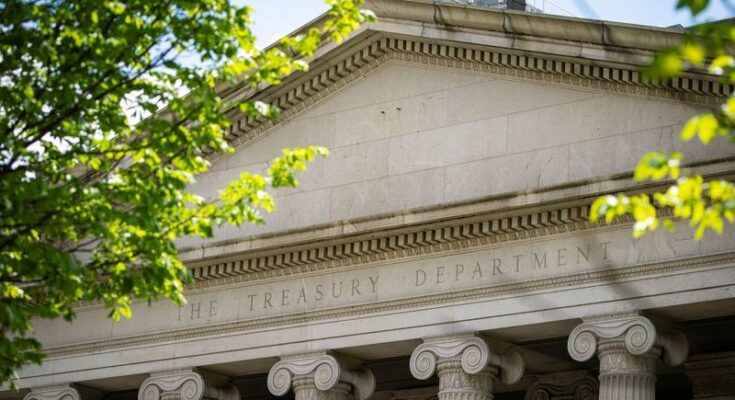Posted by Andrea Shalal
WASHINGTON (Reuters) – A senior US Treasury official on Thursday called on emerging creditors – the biggest of which is China – to cut loans to countries that have already started a program with the IMF. or multinational development banks.
“When IMFs and MDBs support country reforms and investment projects, investors should not withdraw their funds,” Deputy Treasury Secretary Jay Shambaugh said at an event at the Peterson Institute for International Economics.
He said that there is a long historical precedent among the Paris Club of Western official creditors of participating in the return of money or providing provisions for borrowers and not withdrawing when the situation is difficult.
“No individual creditors should be exempted from withdrawing funds from the country while it implements IMF- and MDB-supported reforms, and other bilateral and multilateral creditors are still they refinance or spend, or install new equipment,” he said.
Shambaugh said decisive, coordinated action is needed by all of the country’s official creditors to address the worsening financial crisis facing low- and middle-income countries and to accelerate debt relief when it is necessary.
Many developing countries faced a “business shock” due to the collapse of bilateral official and private financing at a time when debt servicing rates were also rising, he said. said so.
Shambaugh said measures are also needed to help developing countries with significant external debt continue to be able to access private capital at low cost and long-term, so that flows of the private sector can no longer exist against support from international financial institutions (IFIs).
The US Treasury official’s comments reflect growing frustration among the West and debtor nations over Beijing’s foot-dragging on debt relief efforts and the slow pace of humanitarian agreements.
The Chinese embassy in Washington did not immediately respond to a request for comment.
Shambaugh, who recently returned from Beijing with Treasury Secretary Janet Yellen, said the issue of sovereign debt is a frequent and recurring issue in bilateral negotiations.
He said it is in everyone’s interest to avoid major problems in solving the problems and not to allow a six-month delay in financial commitments to unravel IMF programs.
He told participants that developing countries are spending more to service their public and private debts than they are raising in new funds, with the flow going mostly to China and other emerging creditors. appear with private lenders.
About 40 countries saw foreign debt default in 2022, and the flow is likely to worsen in 2023, he said, noting that sub-Saharan African countries have been unable to access bond markets at all. last year.
To prevent this trend, Shambaugh said bilateral creditors must commit to maintaining good flows to countries that are following responsible policies, especially when the IMF and multilateral development banks (MDBs) support changes and investment projects.
Many low- and middle-income countries had bad debt from China and private creditors.
Shambaugh also called for changes to ensure that the G20’s Common Plan to guide debt relief for low-income countries produces deep and timely reforms.
He said that the United States and other creditors have significantly reduced their lending exposure to developing countries following the wave of debt relief in the 1980s and 1990s, and are now giving more aid to developing countries. than these borrowing countries.
For example, Washington has given nearly 70 billion in aid to sub-Saharan African countries over the past five years, nearly seven times the net debt from all of China’s creditors. , said it would be “helpful” if more emerging loans could be made. change.
He also said that private funds should not come from developing countries with strong macro-structures, calling on creditor countries to encourage the continued cooperation of the private sector through credit and security reforms. of the borrowers.
Countries should also create safe harbors for creditor countries that want to voluntarily relieve private debts, he said.
(Reporting by Andrea Shalal; Editing by Tom Hogue and Josie Kao)
#Treasury #warns #creditors #freeriding #aid #developing #countries
